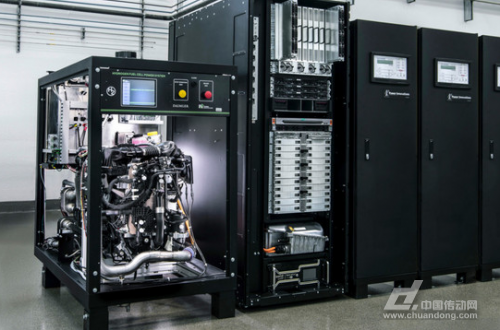
Privacy statement: Your privacy is very important to Us. Our company promises not to disclose your personal information to any external company with out your explicit permission.
Hydrogen fuel cells are currently used primarily to drive cars, but they will soon find another use: to power your Internet servers. At this year's Frankfurt International Motor Show, the world premiere of Mercedes-Benz GLCF-CELL pre-production models, demonstrating its latest generation of fuel cell technology: volume reduction of 30%, power increase of 40%, size fits for Mercedes-Benz Passenger car engine compartment. These new innovation systems are more flexible than ever before and are now deployed in the non-transportation sector. Daimler owns NuCellSys, its 100% subsidiary, together with the Mercedes-Benz North American R&D Center (MBRDNA) and the Daimler Innovation Lab 1886, and is expanding the use case of innovative automotive fuel cell technology.
Daimler partnered with Hewlett Packard (HPE), Power Innovations (PI), and the National Renewable Energy Laboratory (NREL) to harness its automotive fuel cell systems in stationary power systems to demonstrate sustainability and Independent energy supply and accelerate the transition to the generation and supply of renewable energy.

Solar and wind energy will provide most of the energy, but fuel cells will fill this gap when power demand is too high or power cuts have no other option. Companies do not have to rely heavily on diesel generators or other less environmentally friendly backups to meet demand. Unlike the backup battery, there is no limit to it – as long as hydrogen is available, the fuel cell can continue to operate.
This year's work began with a prototype, but it is safe to say that it will take some time to see this on the scene. HPE is working with partners to connect fuel cells to existing IT systems. However, this is very helpful for a completely green data center. And, importantly, even if the auto industry is completely turning to electric vehicles, it can provide a viable future for fuel cells. Many mainstream uses may not be available on the road, but even if the server is facing a complete blackout, it can ensure that your favorite social network is running.
The data center is one of the largest electricity consumers in the new economy, and the growth rate of this kind of electricity consumption is also significant. The U.S. data center expects to consume about 140 billion kilowatt-hours of electricity each year by 2020, equivalent to the annual production of about 50 power plants, which will emit nearly 100 million tons of carbon pollution per year.
High reliability, low emission rates, low noise levels and greatly reduced floor space make fuel cells ideal for microgrids in data centers. These technological advantages combined with unlimited scalability, reduced maintenance costs, and cost-effectiveness can address the vast energy storage needs of today's data centers.
“The rapid growth in power demand is putting pressure on traditional power transmission solutions. Using Daimler fuel cells as continuous and backup power solutions will enable us to explore new, sustainable, cost-effective and rapid methods. "Powering our customers' data centers," said Hewlett-Packard Co., vice president and Hewlett-Packard high performance computing and artificial intelligence Packard Enterprise. HPE is working with partners to integrate the fuel cell power system with its current IT infrastructure solutions including HPEApollo6000Gen10, HPESGI8600 and other HPE platforms.
Partners will present the results of their first project at the 2017 Supercomputing Conference in Denver from November 13th to 17th.
Daimler, Hewlett-Packard and PI will work with the National Renewable Energy Laboratory (NREL) to begin the pilot phase next year. NREL has a reputation for sustainable data centers and renewable energy and hydrogen production, storage and safety standards. “We look forward to working with Daimler, Hewlett-Packard and PI to make full use of our facilities and expertise to demonstrate the concept of the first integrated hydrogen fuel cell data center,” said Dr. Steven Hammond, Director of the NREL Center for Computational Science.
September 19, 2022
September 09, 2022
September 08, 2022
September 09, 2022
November 03, 2022
이 업체에게 이메일로 보내기
September 19, 2022
September 09, 2022
September 08, 2022
September 09, 2022
November 03, 2022

Privacy statement: Your privacy is very important to Us. Our company promises not to disclose your personal information to any external company with out your explicit permission.

Fill in more information so that we can get in touch with you faster
Privacy statement: Your privacy is very important to Us. Our company promises not to disclose your personal information to any external company with out your explicit permission.